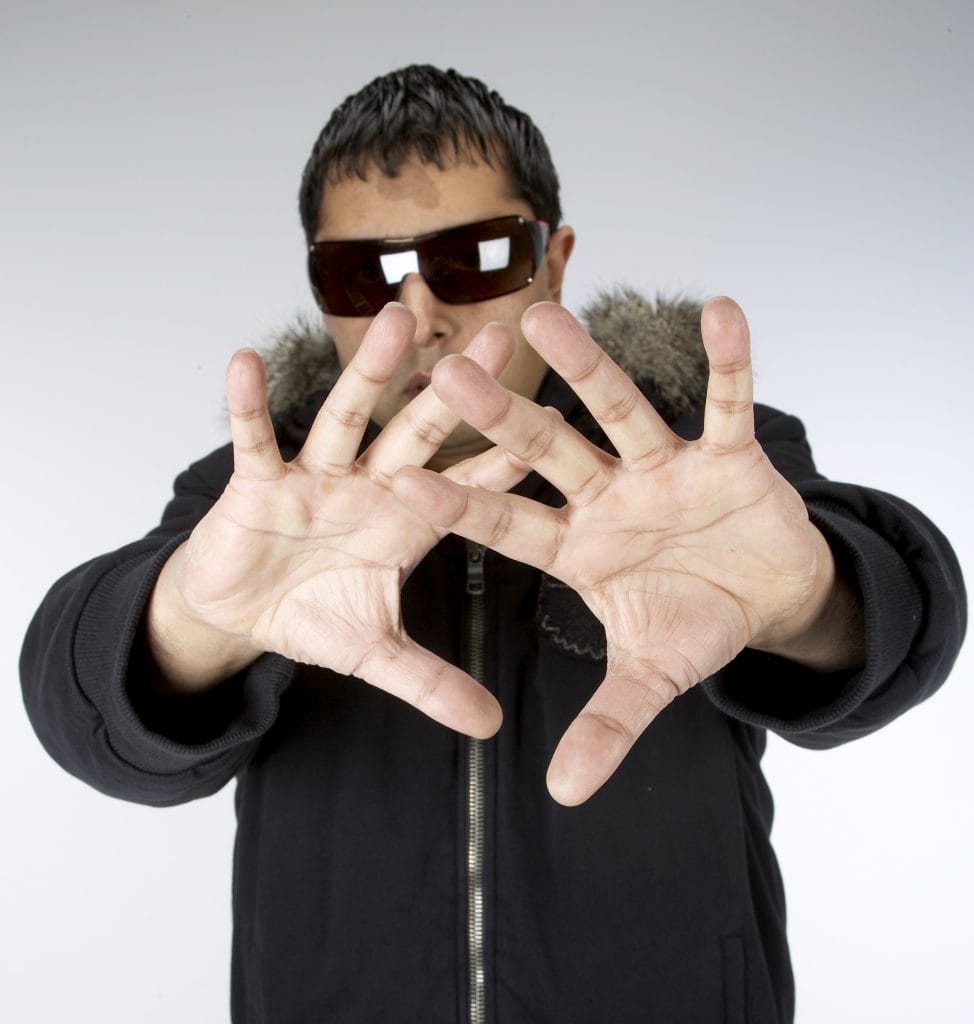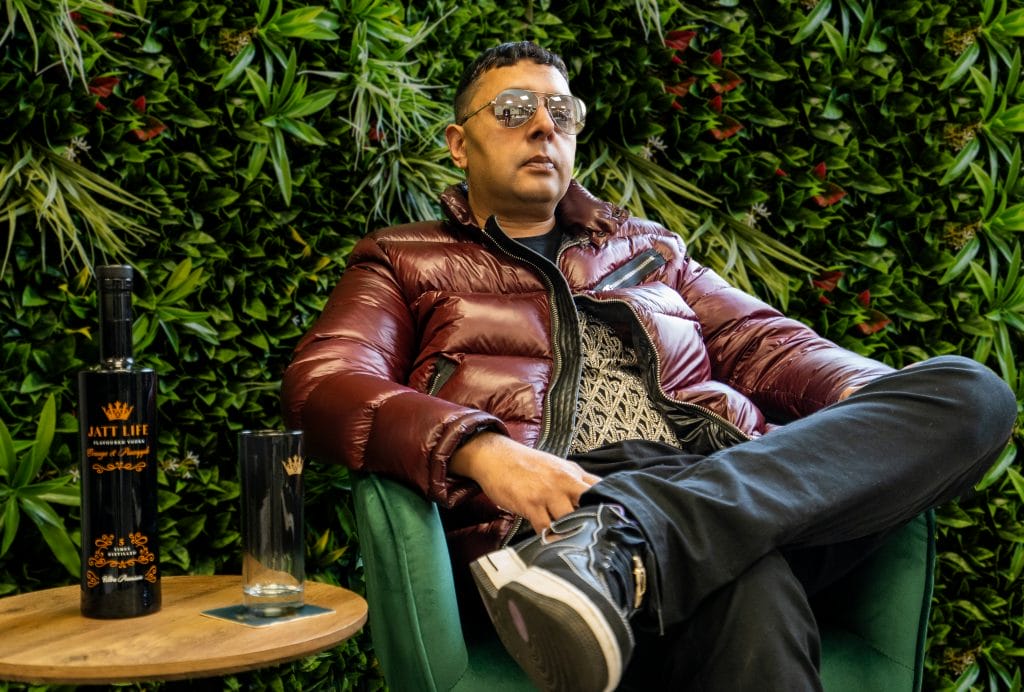Beware of the Bhangra beat
By Shaan Bajaj
“IT’S A PUNJABI SONG!” I’d screamed to my best friend Max when the instantly-recognisable tumbi rift of “Mundian To Bach Ke” had blared through the speakers of a club in Belfast, Northern Ireland. With disbelief and joy evident on my face, I’d immediately felt an overwhelming sense of home in a sea of people that looked nothing like me, all while I Bhangrad my Punjabi heart out.
Rajinder Singh Rai, popularly known as Panjabi MC, tells me that my experience is not an anomaly. In fact, one of his most memorable live shows was in Germany. With nostalgia laced into his voice, he says, “It was mainly a Western crowd, with one guy in a turban. The man came up to me after the show and said, ‘no one knew Punjabis when I moved here but after this song, everyone knows who we are.’”
Before gaining international fame, Panjabi MC spent his childhood in Coventry, the midlands of England. He had a keen interest in music and started rapping, producing music, and DJing at the age of 18. Because he often reverted to Punjabi language when writing lyrics, the use of both Punjabi and English earned him a nickname, Indian MC. He informed his friends that he was actually speaking Punjabi and that is when Panjabi MC was born.
Masala sat down with this world-renowned DJ to better understand how he harnessed the power of Punjabi folk music and hip-hop to unite people on the dance floor.
Can you give us a brief overview of your career as a music producer, DJ, and artist? What have been the highlights, and the low points?
I started rapping in the early 80s and 90s. In those days, I did not know any Indian rappers who used American hip-hop, as it was more London grime and commercial. I only started producing music because I wanted to loop tabla beats on top of a hip- hop beat, so I could rap to it. I used to sample tabla loops off the tracks of Kuldeep Manak, Surinder Shinda, and other similar artists. Bits and pieces of the vocals would remain looped in before returning to the beat. People would tell me to leave the vocals in; some even told me to take my own rap off [laughs]. It was a big hit, and that’s where it all started.
A highlight was producing “Mirza”, which is when I saw an Indian crowd accept an English rap. It occurred to me that if the Indian crowd could accept an English rap verse, then I’m sure the non-Punjabi speaking crowd would be open to Punjabi vocals. That’s where I got my fusion sound from, and I decided to produce “Mundian To Bach Ke”, first released in 1998 and then again as a single in 2003 with Jay-Z; getting him on to the track was probably my biggest musical achievement. Before that, we didn’t know people would listen to Bhangra music, and all of a sudden, we realised how many fans there were. The song has definitely lasted the test of time. However, my favourite song that I have produced is probably “Mirza Part 2”, with the living legend Surinder Shinda on it, someone I highly respect.
The low points were mainly discovering what the labels were like; there was a lot of politics and I shouldn’t have given my rights away. The lowest was not being able to release anything after “Mundian To Bach Ke”, but I persevered, as I really love what I do. Making music is like therapy for me.
What do you do when you run out of inspiration?
I record voice notes whenever I have random ideas. Therefore, when I’m sitting in the studio, I can go through them to get inspired. Although, sometimes I get stuck on the last two lines of a song and have to think of brand new things.
As a third culture kid, how does your music represent your identity?
Coventry is right in the centre of England, and there was a lot of music coming in from India, Canada, the US, and many different cultures. It is a place where music has really fused together. Even the old bands and musicians of Coventry play a lot of fusion music. Additionally, I had a diverse group of friends and my music reflects that.
When did you first realise that “Mundian To Bach Ke” would be the sensational hit that still dominates clubs worldwide? Did you anticipate that?
I thought it was going to be big in the Bhangra game as it got a great response from the label, and it got picked up by national DJs straight away. I was invited to the Tim Westwood show, when it was unheard of to have a Bhangra producer on that hip-hop show. He was playing the song, other DJs like Funk Master Flex and Fatman Scoop were playing it too, and slowly other crowds started jumping on the bandwagon. It kept growing; obviously getting Jay-Z on it meant it became mainstream. All of that was surprising to me, but I was delighted. I did not expect international recognition for a Bhangra song, and it’s still shocking how it is the go-to song for so many events. All this time and nothing has come along to replace it, even though there has been a whole movement of Punjabi music that followed.
What do you think about today’s British-Punjabi artists? Are there any you follow and are a fan of?
There are different elements nowadays. Many people are using Bhangra sounds blended with hip-hop and old school. Bhangra music is a genre itself, which encompasses traditional Bhangra, hip-hop Bhangra and many different varieties. I think the classic and festival sounds of Bhangra still have a big chance in the game.
The artists that are inspirational to me are D8, JK (Jatinder), and Tru-Skool especially, and of course I still love Surinder Shinda, and I have a lot of love for local Coventry bands from back in the day.
Which artist have you discovered whom you knew would be a major hit?
Labh Janjua, whose vocals feature on “Mundian To Bach Ke” was unheard of. When I heard his voice, I thought it was the best one I’d heard so I knew he would be huge. Unfortunately, he has passed away now but he made it in Bollywood. There were also people that I thought would not be as big, but they made it, so you just can’t know for sure.
What are you currently working on and do you have any upcoming releases?
I am releasing a new single, “Soniye”, in association with the Big Bad City Tour, so watch out for that. Additionally, I have just taken over a recording studio, Planet Studios, which is iconic within the Bhangra market. It’s been running for 34 years, and many Bhangra hits and famous artists have recorded there. This is also part of our long-term strategy to start releasing more songs on a regular basis, so stay tuned for quite a few more singles.
Any advice you would give upcoming artists?
I am still learning myself so I would like to pass on the advice I have been given. The industry has changed since I started, and social media is important. To generate money, there has to be consistent music to build up your social media profile. And make sure to catch my show in Bangkok! [Laughs]
Panjabi MC will be playing on the 11th of February at Flamenco alongside the BANGKOK INVADERS for a fantastic night of old school Bhangra, Hip hop and Rnb. Doors open at 8pm and limited tickets/ tables are still available at https://megatix.in.th/vskpresents
The Big Bad City Tour is brought to Thailand by the team at VSK Presents and Jatt-life Vodka Thailand, led by Vin Kumar, the Co-founder and Director of Megatix Thailand, VSK Presents and Distributor of Jatt Life vodka








